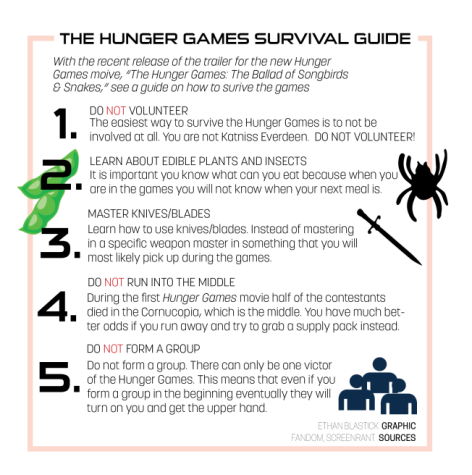The Hunger Games is one of the most recognizable dystopian series, and for good reason. With a captivating story and engaging characters, the franchise has captured the hearts of millions worldwide.
Written by Suzzane Collins, the story follows Katniss Everdeen as she volunteers to take her sister’s place in the Hunger Games and ends up causing a revolution which eventually culminates in the overthrow of President Snow’s tyrannical regime. Tying together themes of resilience, survival, sacrifice, and justice, the novels were an instant success, resulting in the movie adaptations. Staying mostly loyal to the source material, the movies brought the scenes and characters to life, allowing us all to see what we had already imagined.
While many movie adaptations fail to remain true to the novels they are based on, The Hunger Games franchise does a good job of avoiding this. Despite some significant omissions, the movies convey the same core themes as the books and many things shown on screen were exactly as I had pictured them in my head.
For all their merits, however, watching the movies would not allow you to truly understand the message Collins was trying to send. Sure, you would gain an understanding of the plot, but if you want to understand more, you would have to read the books. Simply put, what’s shown on the screen is unable to reach the depth the written words can. The movies show a very detailed, yet surface-level image of the struggles that Katniss faces. The books, on the other hand, grant you access to her innermost thoughts and feelings and the turmoil she faces. Hearing the story from Katniss’s perspective rather than the filmmakers’ perspective allows you to better interpret the work in the original form as the author created it. Although you can’t go wrong with either the books or the movies, I would have to say the books are significantly better than the movies.





























![Keep the New Gloves: Fighter Safety Is Non-Negotiable [opinion]](https://hilite.org/wp-content/uploads/2024/12/ufcglovescolumncover-1200x471.png)
















































![Review: “We Live in Time” leaves you wanting more [MUSE]](https://hilite.org/wp-content/uploads/2024/12/IMG_6358.jpg)
![Review: The premise of "Culinary Class Wars" is refreshingly unique and deserving of more attention [MUSE]](https://hilite.org/wp-content/uploads/2024/12/MUSE-class-wars-cover-2.png)
![Introducing: "The Muses Who Stole Christmas," a collection of reviews for you to follow through winter [MUSE]](https://hilite.org/wp-content/uploads/2024/12/winter-muse-4.gif)
![Review: "Meet Me Next Christmas" is a cheesy and predictable watch, but it was worth every minute [MUSE]](https://hilite.org/wp-content/uploads/2024/11/AAAAQVfRG2gwEuLhXTGm3856HuX2MTNs31Ok7fGgIVCoZbyeugVs1F4DZs-DgP0XadTDrnXHlbQo4DerjRXand9H1JKPM06cENmLl2RsINud2DMqIHzpXFS2n4zOkL3dr5m5i0nIVb3Cu3ataT_W2zGeDAJNd_E-1200x884.jpg)
![Review: "Gilmore Girls", the perfect fall show [MUSE]](https://hilite.org/wp-content/uploads/2024/11/gilmore-girls.png)
![Review in Print: Maripaz Villar brings a delightfully unique style to the world of WEBTOON [MUSE]](https://hilite.org/wp-content/uploads/2023/12/maripazcover-1200x960.jpg)
![Review: “The Sword of Kaigen” is a masterpiece [MUSE]](https://hilite.org/wp-content/uploads/2023/11/Screenshot-2023-11-26-201051.png)
![Review: Gateron Oil Kings, great linear switches, okay price [MUSE]](https://hilite.org/wp-content/uploads/2023/11/Screenshot-2023-11-26-200553.png)
![Review: “A Haunting in Venice” is a significant improvement from other Agatha Christie adaptations [MUSE]](https://hilite.org/wp-content/uploads/2023/11/e7ee2938a6d422669771bce6d8088521.jpg)
![Review: A Thanksgiving story from elementary school, still just as interesting [MUSE]](https://hilite.org/wp-content/uploads/2023/11/Screenshot-2023-11-26-195514-987x1200.png)
![Review: "When I Fly Towards You", cute, uplifting youth drama [MUSE]](https://hilite.org/wp-content/uploads/2023/09/When-I-Fly-Towards-You-Chinese-drama.png)
![Postcards from Muse: Hawaii Travel Diary [MUSE]](https://hilite.org/wp-content/uploads/2023/09/My-project-1-1200x1200.jpg)
![Review: "Ladybug & Cat Noir: The Movie," departure from original show [MUSE]](https://hilite.org/wp-content/uploads/2023/09/Ladybug__Cat_Noir_-_The_Movie_poster.jpg)
![Review in Print: "Hidden Love" is the cute, uplifting drama everyone needs [MUSE]](https://hilite.org/wp-content/uploads/2023/09/hiddenlovecover-e1693597208225-1030x1200.png)
![Review in Print: "Heartstopper" is the heartwarming queer romance we all need [MUSE]](https://hilite.org/wp-content/uploads/2023/08/museheartstoppercover-1200x654.png)




